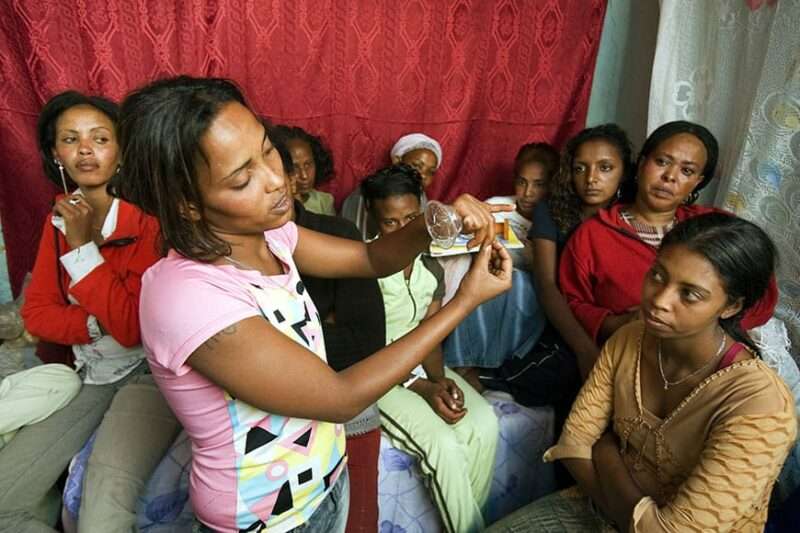You can now listen to Antigua News articles!

By Kieron Murdoch | Opinion Contributor
Last week, we asked whether prostitution was inherently bad and whether our society would seek to eliminate it or clean up its practice? We acknowledged that there are varying views on the subject, such as those who view prostitutes as victims of a society that pressures them into a dangerous and undignified trade, and those who view prostitution as something acceptable trade for those who willingly engage in it.
When it comes to where we fall, we perhaps are somewhere in the middle. Some may disagree, but we cannot help but think that the business of selling access to one’s body for sex is an activity that is inherently risky and undignified. Still, we must acknowledge that what we might consider to be demeaning or undignified may not viewed similarly by others.
What is inherently demeaning about selling sex? In our opinion, each human being ought to have sexual autonomy. Sexual autonomy is the right to make decisions about one’s body, sexuality, and fertility without coercion or violence. Are we right to think that when sex and access to a person body becomes transactional – when it can be priced and bought – it reduces the level of freedom involved in the equation?
When we commoditise sex, we tend to create a set of economic pressures and incentives around it which serve to erode the fullness and trueness of the freedom people ought to have to make decisions about sex on their own terms. We also cannot help but acknowledge that for many persons in the sex trade, economic pressures or necessity is what brought them there.
The question could be asked of those engaged in the sex trade: Had you another opportunity to earn a decent income via another trade or profession, would you not take it? Or, were the circumstances of your life different from what they were when you started, would you have still made the decision (if indeed it was your decision) to engage in this trade?
In our context, how many people of middle or upper class backgrounds wind up in the sex trade, as compared to those from lower income earning brackets? How many people from well to do and affluent areas end up in the sex trade as compared to those who grew up and lived in more difficult circumstances? We cannot ignore that reality.
Still, as prostitution and more broadly, sex work goes, looking at examples from many countries, you can easily find examples of prostitutes/sex workers who ply their trade in more affluent circles and with a higher degree of prosperity and less seediness around what they do. Some come from better off backgrounds. What lesson could we take from this?
Perhaps the takeaway is that pressures exist at all classes of society to offer sex for sale. In the lower income strata, people are hooking on the roadside, half naked, dolled-up, and often appearing quite unfortunate. At the other end of the spectrum, people are meeting their clients in nicer spaces, or they have exclusive contacts. The remuneration for work is high, and can pay for a degree, feed an extended family or buy a home.
Prostitution exists in virtually every society and in each socioeconomic strata. But regardless of whether those who engage in the sex trade are doing so from a bar on Popeshead street at all hours of the night and early morning, or on satin sheets in a condo in Blue Waters after dining at a fine restaurant, we still cannot help but feel that transactional sex brings with it a set of incentives and pressures that puts people in situations which many times they would perhaps ideally prefer not to be in.
Of course, the challenge is that at the same time, the same concept of sexual autonony can be a platform from which to argue against applying pressure to curtail prostitution. As we mentioned in our previous piece, we tend to feel that consenting adults should be allowed to engage in sex on their own terms, with the only lawful restrictions being those imposed to prevent harm, exploitation and other outcomes negative enough to warrant the intervention of the law.
If we apply such a principle – a principle of avoiding harm, exploitation, and negative outcomes – then it stands to reason that we try our hardest as a society to clamp down on those aspects of the sex trade that are dangerous, exploitative, risky, and harmful. This certainly means eliminating human trafficking, pimping, and child sexual abuse through initiation of minors into prostitution and or transaction sex.
It would also mean that a society may be obligated to offer some level of protection to those involved in the sex trade – laws (and enforcement) that establish a framework to support safe spaces, fair remuneration, access to healthcare, and access to justice in the case of sexual violence. We might also seek to establish a framework to support anyone who wishes to transition out of the industry.
Some people think we should actually licence brothels and businesses to engage in the sex trade openly. We would disagree though. We should also be wary of creating a framework which gives to much allowance for organisations, businesses and premises for prostitution. The presence of these and the marketing of around them would likely cause an increase in demand.
An increase in demand creates pressure for supply to increase. The existence of pressure for supply to increase means that trafficking, pimping and recruitment of persons for prostitutions becomes a more lucrative investment and the potential for exploitation increases.
If you wanted to eliminate prostitution altogether, you may find it difficult to do so. The question is, would you go as far as to criminally punish prostitutes themselves? For many, that seems a stretch too far. What about their clients? Should the focus be on supply suppression or demand suppression? And would you really succeed, or just force the industry underground and thereby make it even more seedy and risky?
Ideally, if you take our view that prostitution is not something over which sex workers themselves ought to be criminally penalised, but is nonetheless a complex issue which if left unaddressed leads to exploitation, then we should be aiming to suppress the trade, and more so its most illicit elements.
Ultimately, prostitution is a complex issue influenced by many factors. The view that society takes of it is also affected by many factors. Prostitution is affected by gender norms, the status of women in society, attitudes toward sex in society, religious views in the society, the economic impact of the industry on society, the economic conditions in the society and among different groups in the society, the institutions in the society which engage in promotion and recruitment, the activity of trafficking networks, the issue of immigration and the status and opportunities for foreign nations – the list is long.
We are curious though, should our society succeed in eliminating the pimping, the trafficking, the exploitation of the underprivileged, the sexual abuse of children through their exploitation in, and initiation into the sex trade, and were we to provide an effective support framework to assist those who wished to be supported in getting out of the trade to do so, what would we be left back with? Would we have eliminated prostitution? Probably not.
About the writer:
Kieron Murdoch is an opinion contributor at antigua.news. He worked as a journalist and later as a radio presenter in Antigua and Barbuda for eight years, covering politics and governance especially. If you have an opinion on the issues raised in this editorial and you would like to submit a response by email to be considered for publication, please email staff@antigua.news.














First off prostitution is the oldest trade in the world. Second isn’t prostitution illegal in this country? With that said, prostitution is a way of life for many women and men in countries all over the world it’s a trade that supports many of the poorest countries economies since biblical times and will continue to do so as a matter of fact in some cultures it is an acceptable way of life…
At this point I’ve given up on post-slavery black society. Why are people trying to justify yet another means of destroying family life? Isn’t the multiple baby mama, baby papa drama bad enough? Aren’t there enough children being raised in less than perfect households? How much more dysfunctional do we need our society to get? Instead of finding ways to encourage men and women to create more stable marriages we are trying to find excuses to legalise prostitution? Even Africans have stable family arrangements where marriage is the norm. So do Caucasians in most countries, so do Asians. Asians have the strongest marriages in the U.S. and are also the most economically successful there. Did you know that, according to sociologists, the family is not just a unit for emotional support it is also an economic unit. Properly functioning families support members in tough times leading to less poverty etc. Can we not see that the poor family structures and dysfunctional family behaviors in our post-slavery culture is directly linked to our material suffering? Stop encouraging further family breakdown. Prostitution is an attack on family life and should remain illegal.
Prostitution should not be allowed in the heart of the city… Neither should gambling and all these casinos. Once upon a time teenagers could go into the city at night to go to movies, diners, arcades, roller skating rinks, pizza places etc. and have fun without encountering anything like that or anything unsafe. Town should return to being a family-friendly place. If there are brothels and casinos they should be out of town, far away. St. John’s is too small for all of that. Do the persons responsible for city planning not think at all about what kind of city we would like to have or is it just anything goes these days?